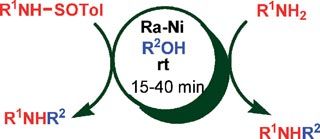Kyowa Hakko Develops a New Manufacturing Technology for Amino Acid Dimers
Advertisement
Kyowa Hakko Kogyo Co., Ltd. (Kyowa Hakko), one of Japan's leading companies in the pharmaceutical and biotechnology industries, announced it has developed a novel, efficient, and versatile process for manufacturing amino-acid dimers (di-peptides). The Company intends to begin the commercial production by 2006 of Alanyl-glutamine, a di-peptide composed of L-Alanine and L-Glutamine, using the new technology.
Despite the nutritional effectiveness of L-glutamine, it has been inefficiently utilized as a component of infusions and enteral nutrients due to its poor stability and inferior solubility in aqueous solutions. Alanyl-glutamine is stable against both heat and acid, is highly soluble, and functions as a source of L-glutamine in the body. The newly developed low- cost production process can encourage wider use of the superior di-peptide, Alanyl-glutamine. Kyowa Hakko anticipates the Alanyl-glutamine market to be between 100 and 200 tons within a few years, and several hundred tons in the near future.
Tomonori Yuji, Managing Director and Bio-Chemicals Company President, commented, "As the company who invented and first industrialized amino-acid fermentation, Kyowa Hakko intends to forge ahead with its newly developed di-peptide manufacturing technology. We believe we can create a new world of superior amino acids, and contribute to the health and welfare of people around the world."
Chemical and/or enzymatic methods have been previously employed for di-peptide synthesis. As these prior methods require chemical modification(s) of amino acids for use as substrates and/or can be contaminated with by- products, they are associated with problems in terms of quality, efficacy, yield, and environmental issues.
Kyowa Hakko discovered a novel enzyme that directly connects amino acids, and has applied it to develop an efficient manufacturing process for di- peptides without chemical modification. Since this enzyme reacts with a variety of amino acids to yield various di-peptides, it can also be applied to the manufacture of other di-peptides in addition to Alanyl-glutamine.
The ready availability of di-peptides can broaden the use of many amino acids by overcoming physicochemical limitations and advantageously adding new functions specific to di-peptides. Thus, broadened application and use of amino acids can be expected. Kyowa Hakko is eager to collaborate with researchers and companies domestically and abroad to explore, expand and apply the advantages of di-peptides with a particular focus on medical and health care applications.
Other news from the department research and development
Most read news
More news from our other portals
See the theme worlds for related content
Topic world Synthesis
Chemical synthesis is at the heart of modern chemistry and enables the targeted production of molecules with specific properties. By combining starting materials in defined reaction conditions, chemists can create a wide range of compounds, from simple molecules to complex active ingredients.

Topic world Synthesis
Chemical synthesis is at the heart of modern chemistry and enables the targeted production of molecules with specific properties. By combining starting materials in defined reaction conditions, chemists can create a wide range of compounds, from simple molecules to complex active ingredients.

































































